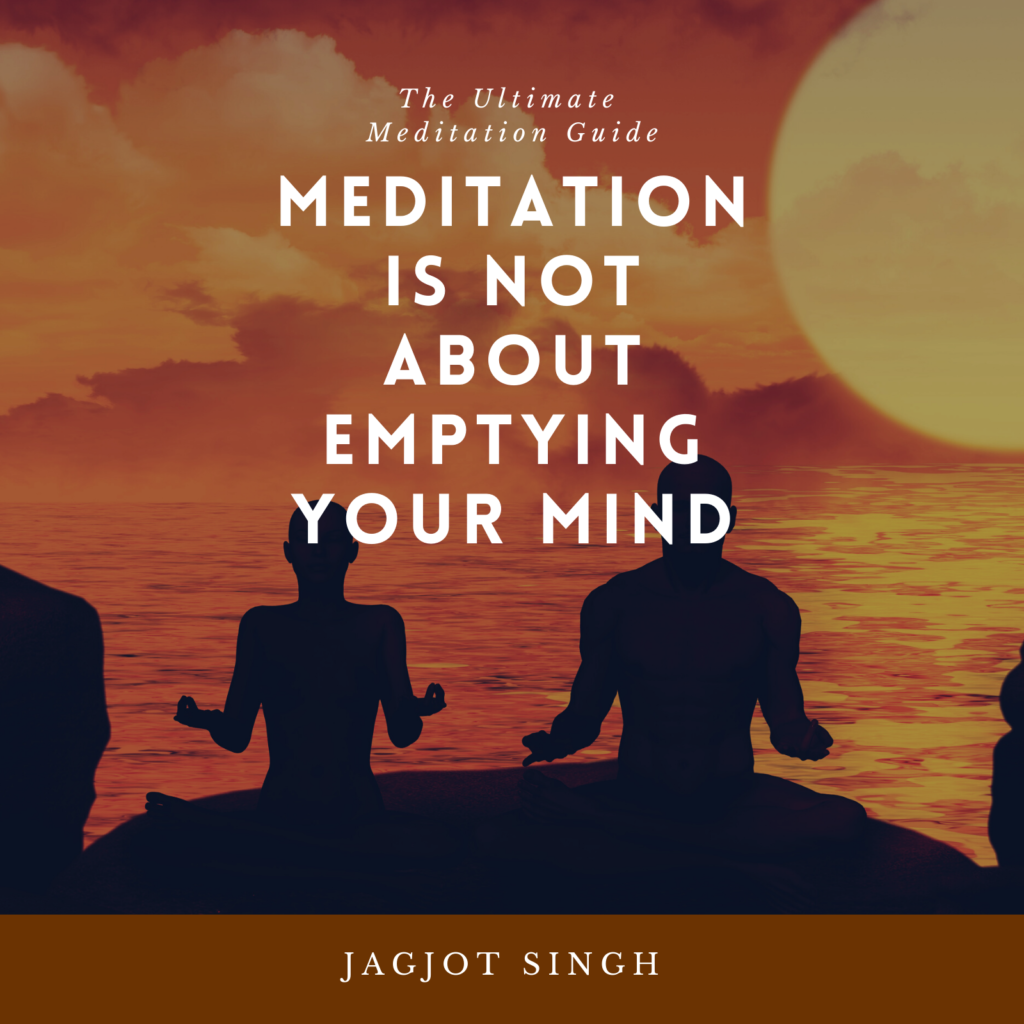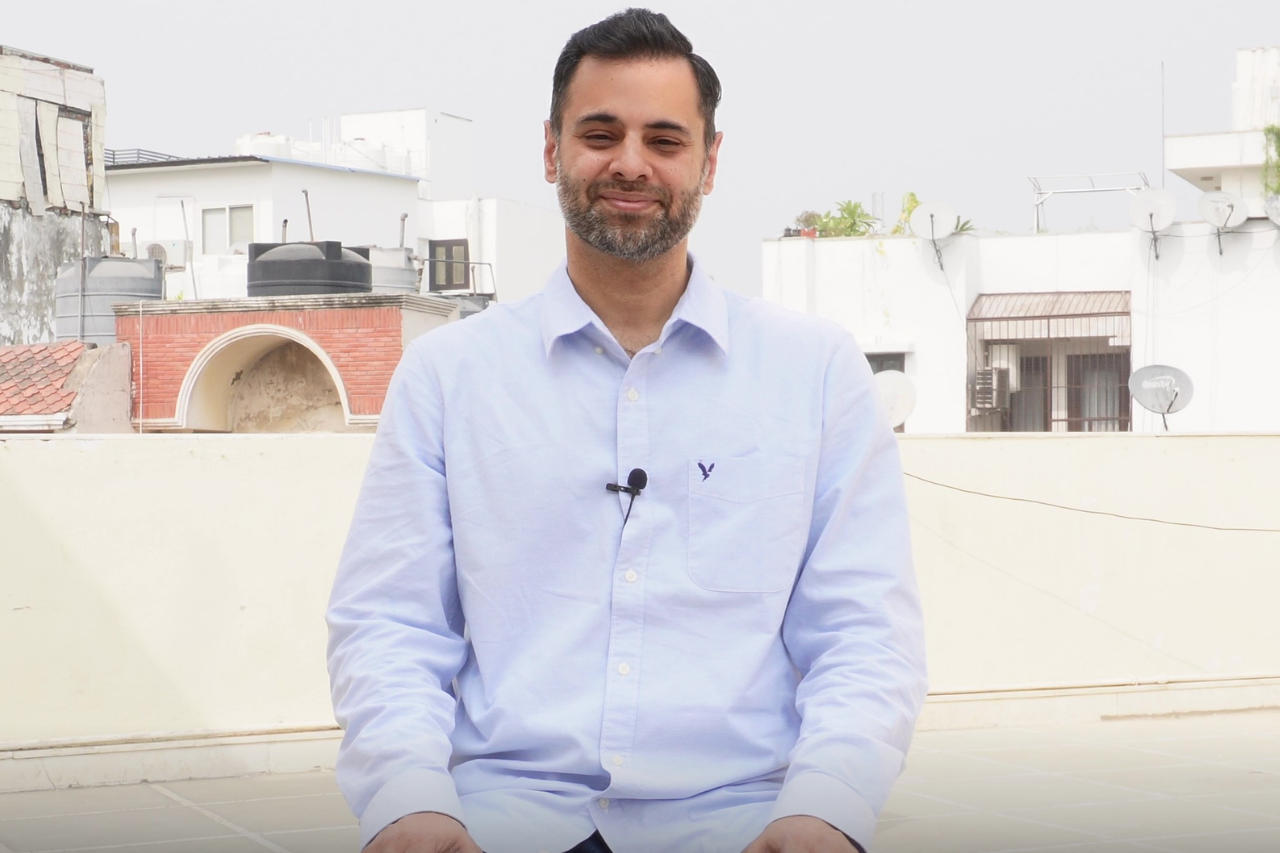I’m a daily coffee drinker for the past 15+ years and have been practicing mindfulness meditation for the past 4 years. I always use to wonder what would happen if I drink caffeine and sit for my meditation sessions. Will it enhance my meditation experience in any way? But to my surprise, the results were quite different, and that’s what exactly I’m going to share with you in this post today.
Don’t worry. This post is not a rant on caffeine or coffee drinkers. I am not here to convince you that caffeine is bad and that you should stop it altogether because I myself drink 2 to 3 cups of coffee during a week.
The Ayurveda clearly says that coffee is a stimulant and falls under the Rajasic category of foods. Rajasic foods are considered good for enhancing performance, such as in sports or other activities that require pushing the body or mind to its extreme limits.
Can meditation and caffeine consumption go together?
Since caffeine is a stimulant, one might feel that it can help focus better in meditation. But my personal experience says that it does not. In fact, the effect is quite the opposite.
I would say that it’s not much of an issue, but there are certain things you need to understand if you are mixing these two in your daily routine, as they have very different kinds of effects on our minds and body.
One thing to understand here is that when I say caffeine, I’m not just referring to that cup of coffee you drink in the morning. Caffeine is present almost everywhere and in everything. It’s in your soda drinks, energy-boosting drinks, cakes, and pastries and is in many packed food items.
How does caffeine affect our brains?
After oil, coffee is the second most traded commodity in the world because of its stimulating effects. It helps us to feel more energetic and keeps us moving throughout the day. So let’s understand what effect it has on our brain that we keep going on relentlessly without getting tired.
I promise not to bore you with too much science here, but a few things are important to understand for the discussion in this article. So hang on with me.
We keep releasing a chemical called Adenosine, which keeps accumulating in our brains whenever we are awake. The longer we are awake, the more adenosine we collect in the brain. It slows down brain activity and makes us feel tired. When we sleep at night, adenosine concentration steadily declines, and we feel active again in the morning.
Consuming caffeine competes for adenosine receptors in the brain and does not allow adenosine to accumulate in the brain. As a result, our brain cannot signal to the body that it’s tired, and that’s exactly how we keep going on for hours and hours without getting tired or fatigued.
So where’s the problem?
The problem is that your brain thinks it requires more adenosine to signal to the body that it’s tired. Therefore, it increases the number of receptors to collect more adenosine. To counteract this effect, we tend to consume more coffee to keep awake.
That’s why when we try to quit coffee, we get horrible withdrawal symptoms like headaches, nausea, tiredness, mood swings, and low energy.
Also, caffeine boosts the production of Adrenaline (the “flight or fight” hormone produced by the body). It increases your heart rate, gets more of your blood pumping, and opens your airways. It affects the dopamine levels in your brain, and as a result, you feel happy and charged up.
How does meditation work on your brain?
Now meditation works in the opposite way—just a little bit more science. Stay with me … 😉
There is an area in the brain called the PFC (or the Prefrontal Cortex). It is the most evolved part of our brain and greatly influences key executive functions such as decision-making, impulse control, reasoning, problem-solving, and creative thinking, among other things.
Recent studies have indicated an increase in the gray matter density in the prefrontal lobe. Studies have also shown a decrease in the size of the Amygdala, a region associated with the “fight or flight” response.
Another region of the brain called the Default Mode Network (or DMN), is sometimes associated with the wandering mind or the “monkey mind.” DMN shows increased activity when we keep jumping from one thought to another, and this kind of response is generally associated with unhappiness and dullness.
Mindfulness practices have been shown to reduce the Default Mode Network activities. It has been observed that caffeine has the opposite effect to that felt after practicing meditation.
Mixing the two together
It’s not about whether you should have caffeine or not but what is right for you and your body type. If your body gets overstimulated by the consumption of caffeine, you should definitely consider reducing your intake.
Avoid drinking sodas and energy-boosting drinks because, first of all, they are not very healthy for you, and secondly, they contain large amounts of caffeine your body can handle. Also, in addition to caffeine, they contain many other things that are not good for the body. As far as your coffee intake goes, you can keep it to about twice or thrice a week. That should be ok. But again, it’s your body, so you decide.
A moderate intake of caffeine should not interfere with the benefits you get by practicing mindfulness meditation.
The effects of meditation and caffeine consumption are exactly the opposite. Caffeine stimulates your brain and triggers your fight or flight mode, and keeps you running as if somebody is out to get you. Excess consumption of caffeine can cause restlessness, stress, and even anxiety.
Whereas in the case of meditation, the brain activity slows down, and as a result, you feel more calm and relaxed. You see, the very purpose of mindfulness and meditation is to keep in a restful and calm state.
When you meditate, you first still your body, and that in turn stills your mind. You don’t need an adrenaline rush to achieve that state. Be free of thoughts, worry, and anxiety.
If you consume too much caffeine, you are likely to have disturbed sleep at night (most people have that effect), and you’re more likely to drift into sleep during your meditation sessions.
A good night’s sleep, along with a well-relaxed body, is important before you sit down for meditation. Many people claim that caffeine does not have any impact on their sleep. But how do we know?
How do you know that you sleep well at night? It’s not about how you feel when you get up in the morning, but it’s about how you feel for the rest of the day, what kind of thoughts you generate, how you handle difficult situations, and what kind of decisions you make.
It’s all connected …
For more information on meditation, read this guide. This is a sample chapter from my book – meditation is not about emptying your mind.
How do I manage my coffee and meditation?
Well, first of all, let me tell you that I take caffeine in the form of coffee only or, at times, black tea. Other than that, I don’t consume anything which contains caffeine.
There was a time when I used to drink 4 to 5 cups of coffee a day. So let’s say one cup of coffee gives me around 130 mg of caffeine, multiply that by five, and that’s the quantity I was consuming per day, which is way beyond the recommended dosage (300 mg) for a day.
Now with that much caffeine inside you, your whole nervous system is affected, and it isn’t easy to remain still in the present moment. The levels of anxiety I had were through the roof, and it was almost impossible for me to concentrate and enjoy my mindfulness moments.
Slowly over the course of a few months, I started cutting back on my caffeine consumption. And to my surprise, I felt more energetic and vibrant, and my anxiety levels were down significantly. At the same time, I was able to sit for longer periods of time in my meditation sessions.
Every one of us is different, and we all have different reactions to caffeine intake. If you consume caffeine regularly and start meditation, you must assess how caffeine affects your body and appropriately regulate your intake.
You have to figure out this on your own, as I cannot tell you what to do because my body’s response to caffeine is different from yours.
As I’ve said earlier that I reduced my caffeine intake and limited it to a maximum of 2 to 3 cups a week. I further plan to reduce my caffeine intake and will subsequently phase it out altogether.
The reason for this is that, in the end, I see it as an addiction only, and I wouldn’t want any external stimulation to affect my meditation.
If you cannot get started without caffeine, you are hooked. You are the slave of your own habit, which you picked up. I wouldn’t want that for myself because it defeats the whole purpose of my meditation.
My whole purpose in practicing meditation is to set myself free, as I don’t want to be a slave to anything in life. It totally depends on your goal in life. If you are practicing meditation just for mental health benefits, a cup of coffee every other day is unlikely to have any impact.
Final Thoughts
So much commercialization of caffeine has given rise to giant coffee chains, which are all across the world. A majority of people living in America consume caffeine in one form or another every single day.
It’s a billion-dollar market that constantly bombards us with attractive commercials and banners.
At times, it’s very tempting and difficult to resist, but we know what to consume and how much of it if we are mindful. Speaking for myself, I like to make my own coffee and seldom have coffee in cafes. I mostly drink a small quantity (about half a teaspoon) of decaf.
Again I’m not trying to convince you to quit caffeine altogether. I’m just asking you to regulate your intake so that you can derive the maximum benefit from your meditation practice.
But if your caffeine intake is way beyond what your body can efficiently handle, then practicing mindfulness or meditation is like fighting a lost battle.



